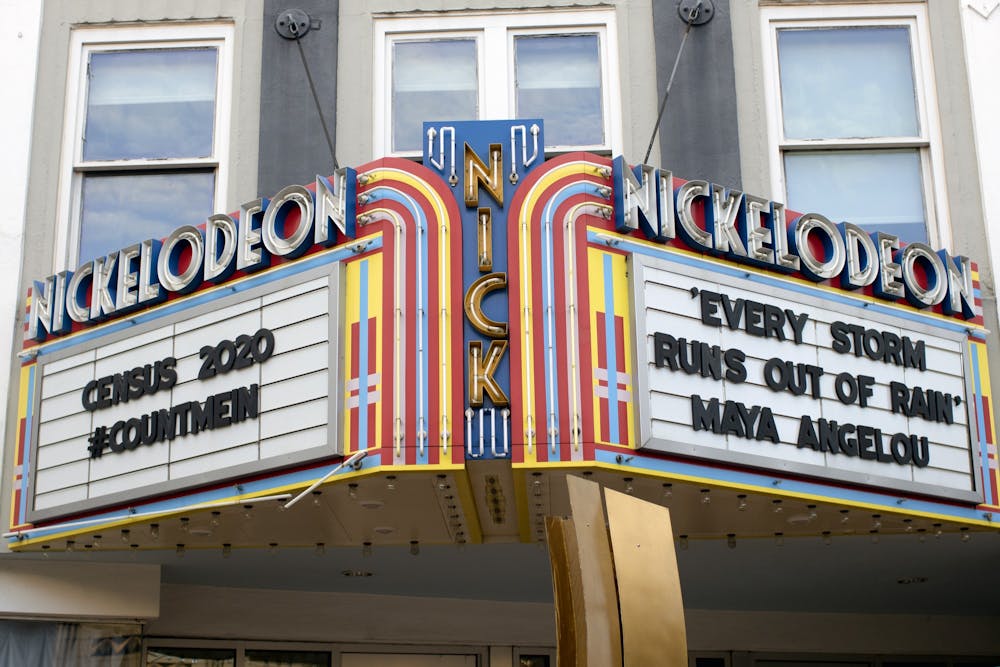The Nickelodeon Theatre held a showing of "Us," directed by Jordan Peele, followed by a Q&A session with the film’s composer, Michael Abels, this week. The showing consisted of a variety of people: music majors, those who don’t have anything to do with music, those who had seen the film before and those who had not.
Abels is a producer and composer born in Phoenix, Arizona. He had his debut composing the score for the Oscar-winning film "Get Out," also directed by Jordan Peele.
Peele's film "Us" focuses on a family’s beach trip that is ruined after they are attacked by their doppelgängers. The Nick Theatre's showing of the film gave to students the opportunity to ask Abels questions about the process of working with Peele and creating a movie soundtrack.
Kat Arrasmith, a PhD candidate in music education at USC, had only seen the movie once before in theaters, and hearing Abels’ commentary gave her the opportunity to see the film in a new light.
“It helped me focus on the music,” said Arrasmith. “It’s such a beautifully nuanced film… and all of the thought that went through it to make it something very unique.”
Abels said that when searching for a composer, Peele sought after somebody who could understand the African American experience in order to best suit the score for the film.
“It’s clear that (Peele) wrote this story, and it's about the haves and the have nots, but it’s designed not to be seen as a racial thing,” Abels said.
The filmmakers deliberately chose to not directly address race and the ways in which it is present in contemporary society. However, the movie subliminally address the topic, through its depictions of white family friends who have a bigger house, better boat and higher socioeconomic status throughout the film, according to Abels.
Abels also commented about his use of “gospel horror.” He was asked to take Black music – a genre filled with hope – and drain the hope from it.
In the film, there is a man holding a sign which says “Jeremiah 11:11,” a prophecy in which people are being tormented, and God doesn’t answer. To Abels, this is the heart of gospel horror. In traditional gospel, it is hopeful music pleading to god, and he answers. In this particular case, there is no answer, and this is the true horror of the film.
The film’s main theme comes from 1995 Luniz song “I Got 5 On It,” which plays at the beginning when the focus family is in the car on the way to their vacation home. Abels took the backing music from the song in order to create the theme of the film.
“(The song's) got these two parts that are melodic… so it’s got duality built into the song, which is what the whole movie is about,” Abels said. “Making it into the version it is was really easy, because the song works so well. It’s already thematically perfect.”
Some of the attendees of the Q&A, including Andrew Hutchens, a third-year doctor of musical arts student and instructor of music industry at Benedict College, had never seen the film before the showing and had the benefit of hearing Abels' analysis immediately after their first exposure.
“We’re going over some of the scoring techniques that (Abels) was talking about, such as leaving some scenes without score to increase the comedic effect or increase the effect of the chills,” Hutchens said. “It's just nice to have an open dialogue with (Abels).”
Landon Osteen, a doctor of musical arts student in guitar performance at USC, was also a first-time viewer of the film, and thought it was a wonderful experience with Abels there to supplement it.
“I definitely wasn’t disappointed. It was really interesting to hear him kind of talk about the collaborative process of writing the film,” Osteen said. He said that it was a new experience to hear how composers collaborate with the directors to make a cohesive piece of work, rather than the first impression that it’s one person’s artistic vision taking over another.

